SERIES REVIEW – Netflix’s latest endeavor, YuYu Hakusho, represents their fresh foray into transforming classic manga and anime into live-action spectacles, joining the ranks of adaptations such as Fullmetal Alchemist, Cowboy Bebop, One Piece, and Rurouni Kenshin, not to mention newer ventures like Zom 100, Alice in Borderland, and the controversial Death Note. While many of these adaptations have served primarily as gateways back to their source material, a handful have stood out as compelling experiences in their own right, mirroring the thrill of flipping through the pages of their original manga. Akira Morii and Kazutaka Sakamoto’s take on Yoshihiro Togashi’s supernatural shonen manga is just that – a compelling reimagining that, while condensed, faithfully reflects the essence and characters of the original, attributes that made the source material so distinctive.
From the very first scene, the movie captivates its audience as the camera glides over the disembodied spirit of young Yusuke Urameshi (Takumi Kitamura) as he stares in shock and confusion at his own lifeless body. Yusuke’s leap in front of a truck to save a child marks the beginning of his extraordinary journey: Arriving in the spirit world, his guide Botan (Kotone Furukawa) informs him that his untimely demise went unnoticed by the powers of the afterlife. Thus, Yusuke is granted a second chance at life, provided he agrees to investigate and confront the demons infiltrating the human world under the guidance of the spirit world’s ruler, Koenma (Keita Machida) – a premise the series dives into with gusto and flair.
The demonic presence is palpably real
The demonic entities that inhabit the people around Yusuke are truly menacing. Director Shô Tsukikawa’s skill ensures that every scene of violence, even when clearly computer-generated, is rendered with harrowing effectiveness and gravity. The concept of “live-action anime/manga” is inherently paradoxical, but as our blockbusters and TV shows increasingly use a plethora of visual effects to update scenes that originated in comic books and animation, we are becoming more accustomed to this blend of reality and fantasy.
The battle scenes in YuYu Hakusho evoke the playful choreography and visual flair of a Paul W.S. Anderson movie (think Mortal Kombat and Resident Evil), with a mix of practical and digital effects resulting in some bizarrely grotesque character designs that fit right in with his oeuvre. The transformation and shifting of demonic bodies, while occasionally outlandish, never stray into the realm of implausibility, and at times recall the effects used in the live-action Parasyte films – not surprisingly, given that both the series and those films were produced by the studio behind Godzilla Minus One and Alice in Borderland, Robot Communications.
The human aspect
Surprisingly, director Tsukikawa puts a lot of emphasis on the human dimension of YuYu Hakusho, which is excellently portrayed in this Netflix miniseries. This is evident not only in the way viewers are able to empathize with Yusuke’s friends and family – especially Sei Shiraishi’s Keiko, whose portrayal is as tender as it is humorous – as they mourn his loss in the premiere, but also in how the characters and actors delve into the melodramatic aspects of the story. Kitamura’s performance is more contemplative than brash, a stark contrast to characters like his rival-turned-best friend (and the heart and soul of the series) Kazuma Kuwabara (Shûhei Uesugi). While both actors have ample comedic talent for the show’s physical humor and hilarious antics, it is their portrayal of Yusuke and Kuwabara’s relationship that stands out. Uesugi’s expressive eyes convey volumes, even when Kuwabara’s face is marred with fake blood and scars, as he stares at Yusuke with desperation and determination, hoping to reach his greatness, stand beside him, and perhaps even best him in battle.
Besides the excellent characterization of the main duo, Tatsurō Mishima’s script falters a bit when it comes to the supporting characters, especially Yusuke’s spirit trainer Genkai (Meiko Kaji) and the demons Kurama (Jun Shison) and Hiei (Kanata Hongo). Their bright wigs and stylish outfits make them memorable, as do the show’s quieter, more sincere moments when actors like Shison and the legendary Kaji (the Lady Snowblood herself) get a chance to delve into their backstories. However, these moments are all too brief due to the pacing demanded by a five-episode series. While manga protagonists typically gain strength over time through extensive training and fighting, Yusuke’s physical and emotional growth in the live-action YuYu Hakusho unfolds all too quickly and exponentially with each episode. The stakes become harder to invest in when the possibility of failure seems so remote; a power-up is always just around the corner.
Becoming increasingly one-dimensional
While the premiere episode is a perfect, exciting start that many shows can only aspire to, each subsequent episode seems to cram in too much. Characters like Botan and Koenma, while enjoyable in passing, are relegated to little more than comic relief – playing out like Togashi’s whimsical throwaway panels in the manga. Even the show’s main antagonists, the Toguro brothers, come across less as fully fleshed out characters and more as somewhat lifeless obstacles for Yusuke and Kuwabara to overcome.
These characters don’t exactly mirror their manga counterparts, but that’s not the point. In this new incarnation, their arcs are so compressed that none of the emotional weight lands: The shared past of younger brother Toguro and Genkai is reduced to mere seconds of half-hearted exposition. It’s a tall order to squeeze such a large ensemble and dozens of chapters of story into five episodes, but the weakness of most of the show’s supporting cast only highlights the richness of its two leads and how YuYu Hakusho is at its best when it focuses on what makes them special and enjoyable to watch. Hopefully, the creative team will get the chance to explore Yusuke and Kuwabara further with a second season that can delve deeper into who their characters really are beyond all their punches and kicks.
– Gergely Herpai (BadSector) –
YuYu Hakusho
Direction - 7.4
Actors - 6.6
Story - 6.8
Visuals/Music/Sounds - 7.5
Ambience - 7.2
7.1
GOOD
The live-action adaptation of YuYu Hakusho offers more than one might expect from a condensed version of a shonen manga. Its commitment to gripping action and heartfelt melodrama, bolstered by the stellar performances of Yusuke and Kuwabara's characters, contributes greatly to the show's success. Though the series may seem superficial at times, these moments are amply compensated for by the dynamic between the main characters and the exciting unfolding of the narrative.

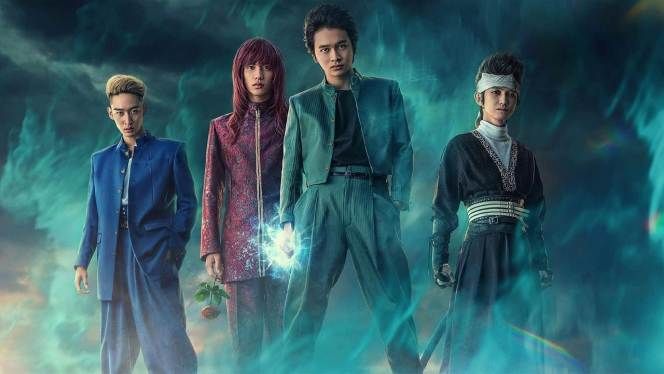
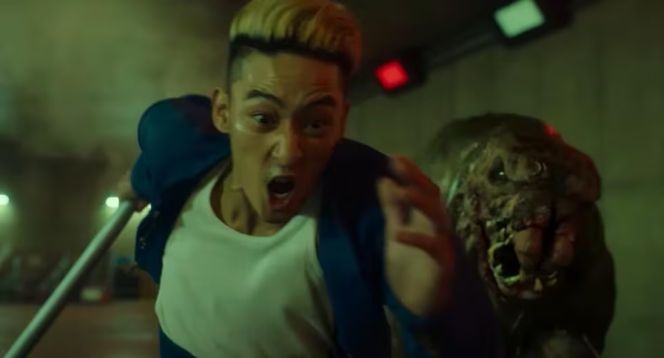
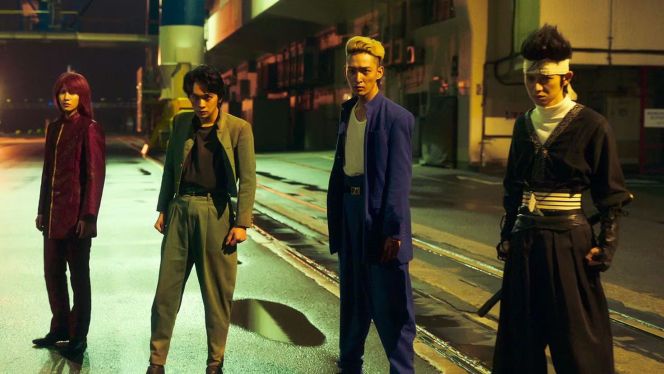
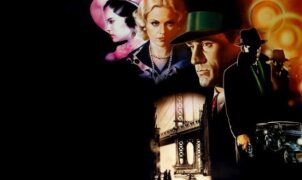

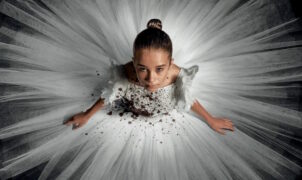
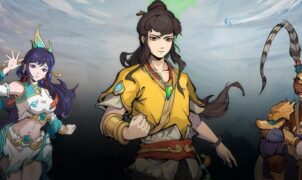




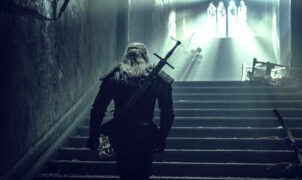
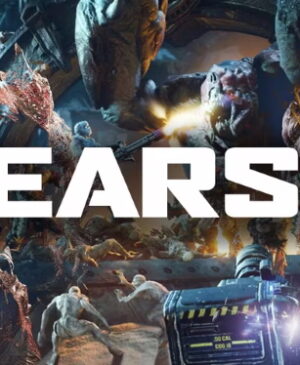
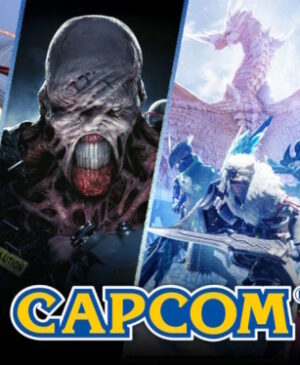

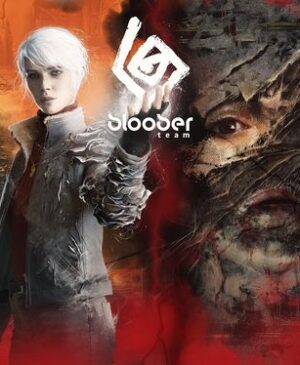
Leave a Reply